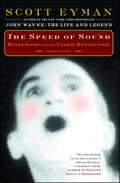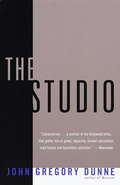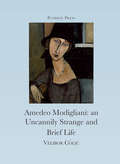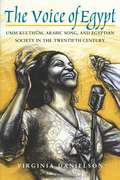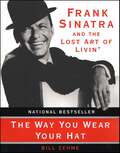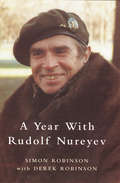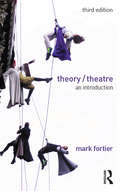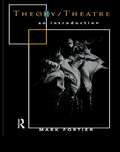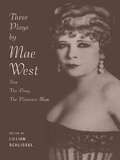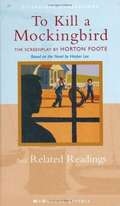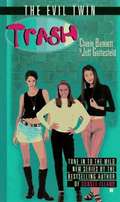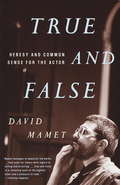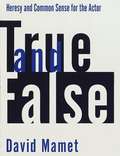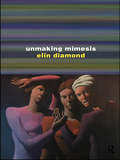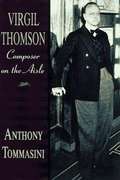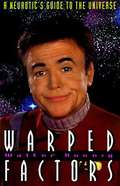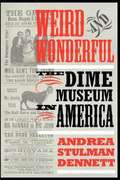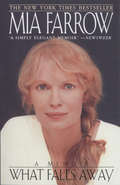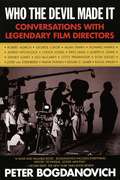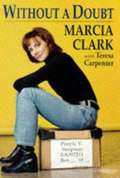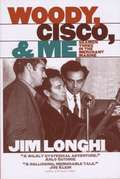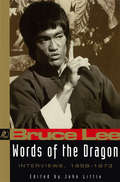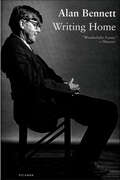- Table View
- List View
The Speed of Sound: Hollywood and the Talkie Revolution 1926-1930
by Scott EymanFor the first time ever, here is the epic story of the transition from silent films to talkies - that moment when movies were totally transformed and the American public cemented its love affair with Hollywood. In the Speed of Sound, author Scott Eyman, whose biography of filmmaker Ernst Lubitsch was hailed as "resoundingly wonderful," has created a mixture of cultural and social history that is at once both scholarly and vastly entertaining. Here is the first and last. word on the missing chapter in the history of Hollywood, the ribbon of dreams by which America conquered the world. Myth has it that it happened overnight, that Al Jolson said a few words in The Jazz Singer and the talkies were born, that stars with weak or inappropriate voices either killed themselves or went into seclusion, that the movie industry simply refitted itself and went on with business. The truth, however, is more involved - not to mention sinister, colorful, and entertaining. Sound was something the industry had resisted, and it was accepted only reluctantly and only after the Warner Bros. Studio had forced the issue with its aggressive selling of The Jazz Singer. But that was 1927, and for a long time afterward there were still those filmmakers, film stars, and even some filmgoers who resisted the appealing novelty. Change, however, was inevitable, and when it came it was devastating. As Scott Eyman demonstrates in his fascinating account of this exciting era, it was a time when fortunes, careers, and lives were made and lost, when the American film industry came fully into its own, and when the American film-going public truly succumbed to Hollywood's bewitching spell.
The Studio
by John Gregory DunneIn 1967, John Gregory Dunne asked for unlimited access to the inner workings of Twentieth Century Fox. Miraculously, he got it. For one year Dunne went everywhere there was to go and talked to everyone worth talking to within the studio. He tracked every step of the creation of pictures like "Dr. Dolittle," "Planet of the Apes," and "The Boston Strangler." The result is a work of reportage that, thirty years later, may still be our most minutely observed and therefore most uproariously funny portrait of the motion picture business.Whether he is recounting a showdown between Fox's studio head and two suave shark-like agents, watching a producer's girlfriend steal a silver plate from a restaurant, or shielding his eyes against the glare of a Hollywood premiere where the guests include a chimp in a white tie and tails, Dunne captures his subject in all its showmanship, savvy, vulgarity, and hype. Not since F. Scott Fitzgerald and Nathanael West has anyone done Hollywood better."Reads as racily as a novel...(Dunne) has a novelist's ear for speech and eye for revealing detail...Anyone who has tiptoed along those corridors of power is bound to say that Dunne's impressionism rings true."--Los Angeles Times
The Uncannily Strange and Brief Life of Amedeo Modigliani
by Celia Hawkesworth Velibor ColicThe life of the painter Amedeo Modigliani (1884-1920) was chaotic and tragically brief. Consisting of a series of vignettes, mostly set in the painter's studio and peopled by his lover Jeanne Hébuterne (who ended her own life the day after Modigliani's death), the prostitutes who were his occasional models and several Bohemian visitors, the novel spans the last months of Modigliani's life, evoking the strange workings of the painter's troubled and often drug-fuelled mind and its expression in his paintings, ultimately succeeding in conveying something of the intense artistic life of Paris in the first decades of the twentieth century.
The Uncommon Wisdom of Oprah Winfrey: A Portrait in Her Own Words
by Bill AdlerTells the incredibly moving story of America's most beloved star in her own words. She evokes her impoverished childhood in the South & her abuse by relatives, her heralded rise as America's most successful talk show host.
The Voice of Egypt
by Virginia DanielsonUmm Kulthum, the "voice of Egypt," was the most celebrated musical performer of the century in the Arab world. More than twenty years after her death, her devoted audience, drawn from all strata of Arab society, still numbers in the millions. Thanks to her skillful and pioneering use of mass media, her songs still permeate the international airwaves. In the first English-language biography of Umm Kulthum, Virginia Danielson chronicles the life of a major musical figure and the confluence of artistry, society, and creativity that characterized her remarkable career. Danielson examines the careful construction of Umm Kulthum's phenomenal popularity and success in a society that discouraged women from public performance. From childhood, her mentors honed her exceptional abilities to accord with Arab and Muslim practice, and as her stature grew, she remained attentive to her audience and the public reception of her work. Ultimately, she created from local precendents and traditions her own unique idiom and developed original song styles from both populist and neo-classical inspirations. These were enthusiastically received, heralded as crowning examples of a new, yet authentically Arab-Egyptian, culture. Danielson shows how Umm Kulthum's music and public personality helped form popular culture and contributed to the broader artistic, societal, and political forces that surrounded her. This richly descriptive account joins biography with social theory to explore the impact of the individual virtuoso on both music and society at large while telling the compelling story of one of the most famous musicians of all time. "She is born again every morning in the heart of 120 million beings. In the East a day without Umm Kulthum would have no color. "--Omar Sharif
The Way You Wear Your Hat: Frank Sinatra and the Lost Art of Livin'
by Bill ZehmeIn The Way You Wear Your Hat, author Bill Zehme presents a masterful assembly of the most personal details and gorgeous minutiae of Frank Sinatra's way of livingmatters of the heart and heartbreak, friendship and leadership, drinking and cavorting, brawling and wooing, tuxedos and snap-brimsall crafted from rare interviews with Sinatra himself as well as many other intimates, including Tony Bennett, Don Rickles, Angie Dickinson, Tony Curtis, and Robert Wagner, in addition to daughters Nancy and Tina Sinatra. Capturing the timeless romance and classic style of the fifties and the loose sixties, The Way You Wear Your Hat is a stunning exploration of the Sinatra mystique.
The Year with Rudolf Nureyev
by Simon RobinsonHere, for the first time, is an intimate and fascinating portrait of Rudolf Nureyev off-stage-a man who was an exacting, unpredictable, parsimonious and often immature individual, yet who, at the same time, aroused great affection in a host of friends. Simon Robinson frankly recalls his eventful year working for Nureyev. He did everything for this hopelessly impractical dancer except be his lover, much to Nureyev's disappointment. It was the Russian's insatiable sexual appetite that eventually destroyed him. Nureyev had six houses on three continents but no staff in any of them and he couldn't cook, drive, write a letter, tie a necktie or even change a light bulb. In 1990 Simon Robinson, until then professional crew on a racing yacht, became his PA. For the next twelve months they traveled from the Caribbean to America to Europe, living in luxury in Nureyev's New York and Paris apartments and in spartan isolation on his tiny Mediterranean island. Nureyev's explosive nature was exhausting to live with and many times during their year together Robinson nearly quit-and Nureyev nearly sacked him. It didn't happen, however, because Nureyev needed his PA's calm reliability to ballast his own rocky life, and because Robinson knew that genius must make its own rules.
Theory/Theatre: An Introduction
by Mark FortierTheory/Theatre: An Introduction provides a unique and engaging introduction to literary theory as it relates to theatre and performance. Mark Fortier lucidly examines current theoretical approaches, from semiotics, poststructuralism, to cultural materialism, postcolonial studies and feminist theory. Drawing upon examples from Shakespeare and Aphra Behn, to Chekhov, Artaud, Cixous and Churchill, the author examines the specific realities of theatre in order to come to a richer understanding of the relations between performance and cultural theory. Theory/Theatre: An Introduction is the only study of its kind and will be invaluable reading for new students and scholars of performance studies.
Theory/Theatre: An Introduction
by Mark FortierTheory/Theatre: An Introduction provides a unique and engaging introduction to literary theory as it relates to theatre and performance. Mark Fortier lucidly examines current theoretical approaches, from semiotics, poststructuralism, to cultural materialism, postcolonial studies and feminist theory. Drawing upon examples from Shakespeare and Aphra Behn, to Chekhov, Artaud, Cixous and Churchill, the author examines the specific realities of theatre in order to come to a richer understanding of the relations between performance and cultural theory. Theory/Theatre: An Introduction is the only study of its kind and will be invaluable reading for new students and scholars of performance studies.
Three Plays by Mae West: Sex, The Drag and Pleasure Man
by Lillian SchlisseMae West, wise-cracking vaudeville performer, was one of the most controversial figures of her era. Rarely, however, do people think of Mae West as a writer. In Three Plays By Mae West, Lillian Schlissel brings this underexplored part of West's career to the fore by offering for the first time in book form, three of the plays West wrote in the 1920s--Sex (1926), The Drag (1927) and Pleasure Man (1928). With an insightful introduction by Schlissel, this book offers a unique look into to the life and early career of this legendary stage and screen actress.
To Kill A Mockingbird: Screenplay And Related Readings
by Harper Lee Horton Foote McDougal-Littell StaffA small-town Southern lawyer loses friends and social position when he defends a black man unjustly accused of rape, but gains the esteem of his motherless children.
Trash: The Evil Twin
by Cherie Bennett Jeff GottesfeldCherie Bennett's thrilling series about interns who work for the trashiest TV talk show in history continues, as Chelsea's terrible secret is aired on national television--and Karma's family asks her to make a scary sacrifice!
True and False
by David MametInvent nothing, deny nothing, speak up, stand up, stay out of school. With these words, one of our most brilliantly iconoclastic playwrights takes on the art of profession of acting, in a book that is as shocking as it is practical, as witty as it is instructive, and as irreverent as it is inspiring. Acting schools, "interpretation," "sense memory," "The Method"--David Mamet takes a jackhammer to the idols of contemporary acting, while revealing the true heroism and nobility of the craft. He shows actors how to undertake auditions and rehearsals, deal with agents and directors, engage audiences, and stay faithful to the script, while rejecting the temptations that seduce so many of their colleagues. Bracing in its clarity, exhilarating in its common sense, True and False is invaluable.From the Trade Paperback edition.
True and False: Heresy and Common Sense for the Actor
by David MametA guide into acting careers for aspirant actors, it helps in judging a role, approaching the part, working with the dramatist, going through auditions, and the industry in general.
Unmaking Mimesis: Essays on Feminism and Theatre
by Elin DiamondIn Unmaking Mimesis Elin Diamond interrogates the concept of mimesis in relation to feminism, theatre and performance. She combines psychoanalytic, semiotic and materialist strategies with readings of selected plays by writers as diverse as Ibsen, Brecht, Aphra Behn, Caryl Churchill and Peggy Shaw. Through a series of provocative readings of theatre, theory and feminist performance she demonstrates the continuing force of feminism and mimesis in critical thinking today. Unmaking Mimesis will interest theatre scholars and performance and cultural theorists, for all of whom issues of text, representation and embodiment are of compelling concern.
Virgil Thomson: Composer on the Aisle
by Anthony TommasiniIn the first full-scale biography of a dominating figure in twentieth-century American music, Anthony Tommasini tells the richly textured story of Virgil Thomson's experiences as a composer, influential critic, and gay man. Writing with exclusive, full access to Thomson's papers and from extensive interviews and research, he recounts: Thomson's early years in turn-of-the-century Kansas City's strange mixture of antebellum racial divides. . . his first steps in the arts, guided by a troubled older man, himself a closeted homosexual in a time when disclosure could destroy a life. . . the crystallizing of his musical ambitions as an often-contentious student of Nadia Boulanger's in Paris. . . his pioneering collaboration with Gertrude Stein on Four Saints in Three Acts. . . his rivalry with fellow composers such as Aaron Copland. . . how he settled personal scores and advanced his own agenda during his reign on the New York Herald Tribune as America's most important, and best, music critic. . . his lasting impact on, and sometimes troubled interactions with, younger composers such as Leonard Bernstein, John Cage, Paul Bowles, Ned Rorem, and Philip Glass. . . and through it all the unending struggle to write, and win an audience for, music that spoke directly and simply to the life of his time. --BOOK JACKET. Title Summary field provided by Blackwell North America, Inc. All Rights Reserved
Warped Factors: A Neurotic's Guide to the Universe
by Walter Koenig"Beneath the tinsel of Hollywood," Oscar Levant once said, "is the real tinsel." Beneath that lies a cornucopia of absurd behavior and bizarre experiences that rival the most creative silver screen fiction. As a young transplant from New York in the 1950s and '60s Walter Koenig quickly came to know Hollywood as a place of energy and opportunity where life's uncertainties loomed large. Launching an acting career in this unpredictable cultural cauldron, he wound his way through various misadventures before finding he had attained a degree of success that surprised even him. This is Koenig's story--from growing up as the neurotic child of Russian immigrants in 1940s Manhattan through his rise to Star Trek fame as Pavel Chekov, Russian navigator of the U.S.S. Enterprise, and beyond. Not a typical Hollywood memoir, Warped Factors is anything but aloof. Koenig's very human narrative is full of the kind of insecurities and quirks anyone can relate to. With wry wit, striking candor, and a true gift for storytelling, Koenig takes us on a sometimes bumpy but often hilarious trip through his galaxy. Blind faith and a healthy sense of irony seem to sustain him as he relates a steady stream of anecdotes, including: *** * Pitching a story to an NBC producer who is in the midst of an out-of-body experience; * Having a loaded gun placed in his ear by a jealous manager; * Performing a controversial play that was interrupted by someone believed to be a member of the American Nazi party dressed in the uniform of a Chicken Delight delivery boy; * Getting fired from a CBS movie of the week for staring at the director; * Being mistaken for a bellhop during a public appearance in his Star Trek uniform; * Declining a Star Trek convention attendee's invitation to help sacrifice a chicken in her hotel room. Of course, this amusing memoir also takes us behind the scenes of Star Trek, with fresh perspectives not only on the cast members themselves but also on the development and evolution of the megalithic sci-fi legend. In fact, Koenig includes a number of the script ideas he himself pitched over the years, including a proposed outline for Star Trek VI (one that saw the deaths of several main crew members, including Kirk) and several for The Next Generation series. Also included are Koenig's notes to producer Harve Bennett on Star Trek IT. The Wrath of Khan, as well as his commentary on several other projects. Finally, Koenig offers candid reflections not only on the Star Trek years but on his life and career since. Most notable are his well-received stints on stage and his current role as the insidious Alfred Bester on television's Babylon S. Enjoying both critical and popular success, Koenig has once again confirmed his enduring position in science fiction's acting pantheon.
Weird and Wonderful: The Dime Museum in America
by Andrea Stulman DennettThe book talks about the almost forgotten dime museum and its history. During its heyday, it was a unique institution that integrated many types of entertainment under one roof and for a single price.
What Falls Away: A Memoir
by Mia FarrowIn an exquisitely written memoir, Mia Farrow introduces us to the landscapes of her extraordinary life. Moving from her earliest memories of the walled gardens and rocky shores of western Ireland and her Hollywood childhood to her career as an actress, she writes of these experiences and her struggle to protect her children in a painful custody battle with Woody Allen. It was this crisis that led her to reflect upon the incidents that had brought her to a place so incomprehensible. Now, in What Falls Away, a memoir resonant not only in its honesty but also in its beautifully crafted prose, Mia Farrow speaks for the first time.She was born the third of seven children to the beautiful actress Maureen O'Sullivan and successful writer/director John Farrow, but the isolation of a polio ward brought her childhood to an abrupt end at the age of nine. Several years later, two deaths shattered the security of the family forever, and Mia Farrow embarked upon a journey that would lead her away from the convent education that was to sustain her spiritual courage, to starring roles in Peyton Place and Rosemary's Baby, a marriage to Frank Sinatra, divorce, a defining trip to India, work on the London stage and in film, and marriage to André Previn. Their life together in England brought them three sons and three daughters before that marriage, too, dissolved and she returned to the United States.The year 1979 saw the beginning of a new career with brilliant performances in thirteen of Woody Allen's most distinguished films.Told with grace and deep understanding, as well as humor, What Falls Away goes beneath the surface of this amazing life, with all its drama, success, and pain, and exposes the inner workings of a mind and spirit for whom truth, compassion, and faith are essential.Mia Farrow's story is ultimately one of hope and courage in the face of difficulty; of commitment to others--most important of whom are her children; and of spiritual strength. Readers will not easily forget this remarkable book, even long after the last page has been turned.
Who the Devil Made It: Conversations with Legendary Film Directors
by Peter BogdanovichIn this fascinating chronicle of Hollywood and the grand art of making movies, Peter Bogdanovich--director, screenwriter, actor, and critic--interviews sixteen legendary directors of the first hundred years of film: Robert Aldrich George Cukor Allan Dwan Howard Hawks Alfred Hitchcock Chuck Jones Fritz Lang Joseph H. Lewis Sidney Lumet Leo McCartey Otto Preminger Don Siegel Josef von Sternberg Frank Tashlin Edgar G. Ulmer Raoul Walsh
Without a Doubt
by Teresa Carpenter Marcia ClarkAs the prosecutor in the OJ Simpson trial, this book is about how Marcia Clark orchestrated the most controversial case of her career.
Woody, Cisco, and Me: Seamen Three in the Merchant Marine
by Jim LonghiIn his 1997 memoir, Jim Longhi, who passed away on November 22, 2006, gives the reader a first-hand account of Woody Guthrie and Cisco Houston during those crucial years with anecdotes that no other living person could tell; his action-packed account of their ship's dangerous journeys through mine-infested waters, his memories of their ships being torpedoed, his description of their shore leaves throughout North Africa, Italy, Scotland, England and France, his hilarious "on-board" stories of Woody as the ship's dishwasher, menu artist, totem builder, and impromptu entertainer for the troops. Here we have yet another side of Woody, described as only Jimmy could. Jimmy's more personal observations of Woody as a "bunk-mate" and friend are perhaps even more revealing. He describes one incident where Woody saved his life after a torpedo hit their ship. He also tells us of the day after Woody's four year-old daughter Cathy died in a house fire and Woody's response. The memories go on and on... His writing is so eloquent and descriptive one can't help but think... "what a great movie this would make!" Jim Longhi, has been a prizefighter, ladies' stocking salesman, merchant seaman, lawyer and politician as well as a playwright. During World War II he and Woody, shipped out in the Merchant Marine. Guthrie taught him to sing, play the guitar, and "to be brave." They entertained troops under fire and were torpedoed twice off Italy and Normandy. After the war, Longhi became a lawyer, representing Brooklyn's rank-and-file longshoremen against the gangsters. With three longshoremen murdered, Longhi became the spokesman for the movement. People from all walks of life came to help, Arthur Miller and Elia Kazan among others. Longhi urged them to make the movie "On the Waterfront" for which Longhi conceived the original idea. Thereafter, Longhi wrote his own play about the waterfront called "Two Fingers of Pride," and gave Steve McQueen his first job. Longhi's second play, "Climb the Greased Pole," was produced in London's Mermaid Theater, starring Sir Bernard Miles. "The Lincoln Mask," which was performed this year off Broadway. His latest play "The Lantern," a play about Lincoln, was just finished.
Words of the Dragon
by Bruce LeeThis collection of newspaper and magazine interviews with Bruce Lee follows his acting career from his debut in The Green Hornet to international stardom in The Big Boss, Fist of Fury, Way of the Dragon and Enter the Dragon.
Writing Home
by Alan BennettA collection of articles, reviews, essays, and diaries from the celebrated writer: “A wonderful book, the wit of which spills over even into the index” (The Times, London).Bringing together the hilarious, revealing, and lucidly intelligent writing of one of England’s best known literary figures, Writing Home includes the journalism, book and theater reviews, and diaries of Alan Bennett, as well as “The Lady in the Van,” his unforgettable account of Miss Shepherd, a London eccentric who lived in a van in Bennett’s garden for more than twenty years.This revised and updated edition includes new material from the author, including more recent diaries and his introduction to his Oscar-nominated screenplay for The Madness of King George. A chronicle of one of the most important literary careers of the twentieth century, Writing Home is a classic history of a life in letters.
